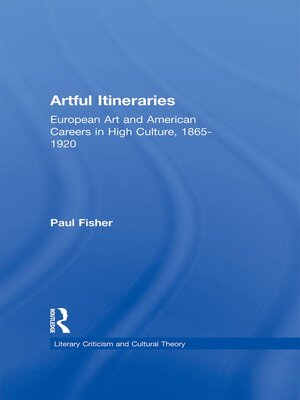Artful Itineraries
ebook ∣ European Art and American Careers in High Culture, 1865-1920 · Literary Criticism and Cultural Theory
By Paul Fisher

Sign up to save your library
With an OverDrive account, you can save your favorite libraries for at-a-glance information about availability. Find out more about OverDrive accounts.
Find this title in Libby, the library reading app by OverDrive.



Search for a digital library with this title
Title found at these libraries:
| Library Name | Distance |
|---|---|
| Loading... |
This study investigates the paradoxical dynamics of American high culture in the late nineteenth and early twentieth centuries by examining the strategies of Americans who wrote about European art in order to promote and legitimize literary careers. Contrary to the myths they themselves disseminated, American writers in Europe did not escape American culture but rather created and participated in US. Cultural institutions like journals, museums, and universities. Transatlantic careers articulated a cult of Europe in a privileged American space, served social and aesthetic hierarchies, and constructed formidable versions of professional authority of American writers.
The book focuses on four art careers Americans practiced in Europe: travel writing, art reviewing, connoisseurship, and salon hosting. It illuminates the careers of William Dean Howells, Henry James, Bernard and Mary Berenson, Celia Thaxter, and Gertrude Stein as itineraries of high-cultural formation and self-definition. In four chapters, the study examines these paradigmatic careers as both literary and cultural history, relating them to a diverse American society as well as Bostonian high culture.
Americans created and deployed expatriate art careers, the author argues, in a landscape of gender, ethnic, and class relations. The use of Europe was both figural and practical: writers created a fantasized Europe that both enacted social repression and enabled social liberation. Ultimately, as the example of James Weld Johnson demonstrates, elitist and Europhile high culture reflected a much larger America as well as the narrower cultural institutions that historically fostered it.







